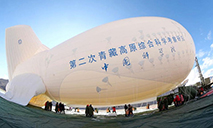Commentary: Beware of U.S. attempt to peddle bloc confrontation in Asia
SEOUL, May 19 (Xinhua) -- Over the past decades, Asia has experienced overall stability as well as rapid and sustained economic growth, allowing the Asian Miracle to occur.
On its path to prosperity, the region recognizes that peace and stability do not happen by chance or as a gift from a single country. Rather, it is the result of the region's countries working together for a shared future.
Therefore, Washington's plot with the sinister intent of sowing divisions and peddling bloc confrontation to Asia should be vehemently opposed.
On Friday, U.S. President Joe Biden will begin a four-day visit to South Korea and Japan, his first trip to Asia as president, but not the first time his administration has attempted to stir up divisions and confrontation in Asia.
According to U.S. media reports, one of the U.S. top priorities is to launch the so-called "Indo-Pacific Economic Framework (IPEF)," an economic extension and supplement to Washington's "Indo-Pacific Strategy" against China.
Despite Washington's claims to "advance a free and open Indo-Pacific," the IPEF is essentially another exclusive U.S.-led economic bloc seeking to erect barriers to multilateral rules in order to contain China and maintain U.S. economic hegemony.
A recent report by the U.S. Center for Strategic and International Studies showed that some Asian countries have already expressed concerns that the IPEF is "primarily a political endeavor meant to counter China, rather than a sincere and thoughtful economic policy integration initiative."
South Korea's JoongAng Daily also commented that Washington intends to suppress China economically through the IPEF while simultaneously seeking to counter China militarily through the geopolitical bloc of Quad which involves the United States, Japan, India, and Australia, in order to achieve a "dual-track" approach against China.
What causes concern and alarm is that even before the U.S. leader has arrived in Japan, the argument that Japan and the United States would jointly confront China has already been widely heard.
Politicians in both countries should bear in mind that bilateral cooperation between Japan and the United States should not provoke bloc confrontation, much less jeopardize China's sovereignty, security, or development interests.
Biden's upcoming Asia trip follows the recently concluded U.S.-ASEAN summit, which was yet another futile attempt by Washington to sway Asian countries into its camp.
With the slogan "America is back," the U.S. administration has formed closed and exclusive cliques along ideological lines to coerce others to take sides in its attempt to contain China. Washington has long enjoyed organizing disruptive coalitions under the guise of constructive engagements.
The so-called "Indo-Pacific Strategy," which it has been peddling since early this year, claims to maintain regional freedom and openness, but in reality incites confrontation, undermines unity, and threatens regional cooperation and development through exclusive geopolitical blocs such as the Australia-UK-U.S. trilateral security partnership and Quad.
Underlying the strategy is Washington's outmoded Cold War and bloc mentality, which will harm the region's long-term and common interests.
As the world needs dialogue and cooperation now more than ever to promote common development, Washington's dangerous narratives of "China threat" and its anti-China united front are counterproductive at best. By stirring up trouble after trouble, Washington is anything but a responsible player in the Asia-Pacific.
Seeking peace, cooperation and development is the general trend in the Asia-Pacific region as well as the common aspiration of all. In an increasingly interconnected world, Washington's small-clique politics and rhetoric of "decoupling from China" should be rejected to the hilt, and humanity can only address the challenges of the times through solidarity and cooperation.
Photos
 China’s central bank to issue commemorative coins on cultural theme of auspiciousness, including two heart-shaped coins
China’s central bank to issue commemorative coins on cultural theme of auspiciousness, including two heart-shaped coins Population of endangered black-headed gulls exceeds 10,000 mark in NE China’s coastal city of Panjin
Population of endangered black-headed gulls exceeds 10,000 mark in NE China’s coastal city of Panjin China's self-developed floating airship breaks record
China's self-developed floating airship breaks record Chinese germplasm bank conserves biodiversity in warm temperate zone
Chinese germplasm bank conserves biodiversity in warm temperate zone
Related Stories
- A third of Americans should wear masks, say U.S. officials
- Study warns of post-COVID symptoms in U.S.
- Over Buffalo mass shooting, U.S. urged to take hard look at itself: report
- U.S. jobless claims rise for third straight week amid tight labor market
- White nationalism is urgent threat that American people must now confront: U.S. media
Copyright © 2022 People's Daily Online. All Rights Reserved.






